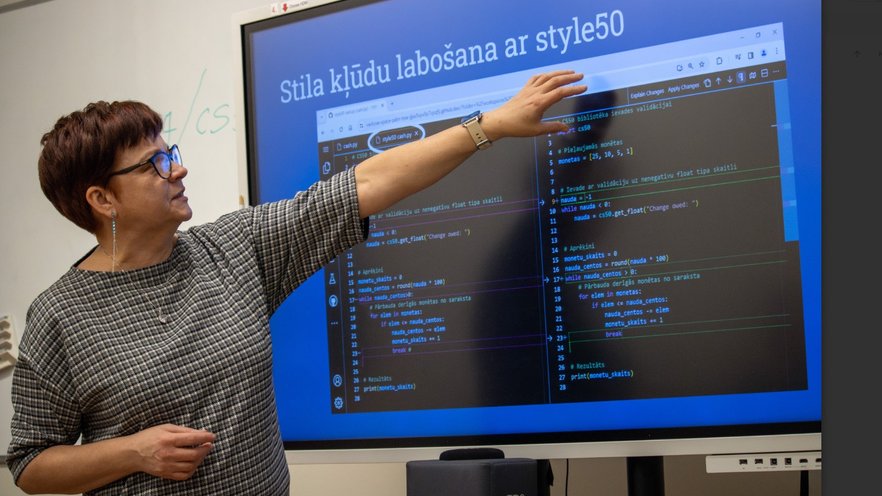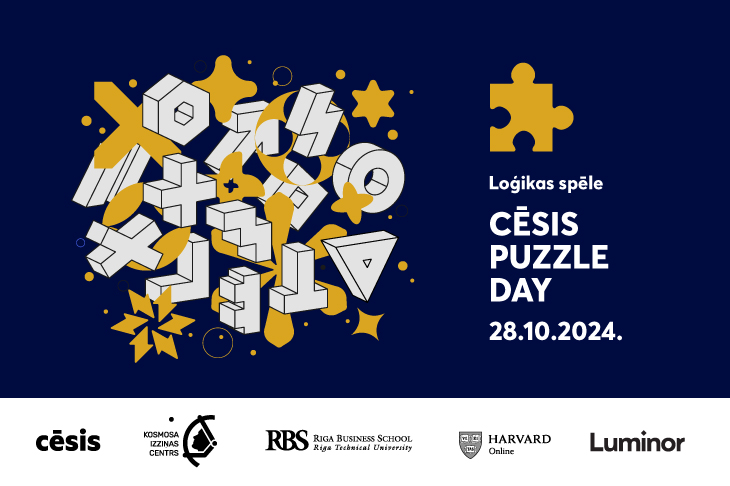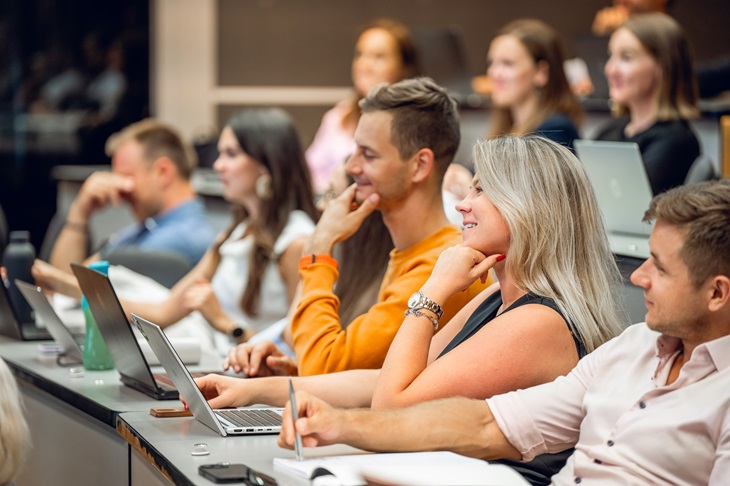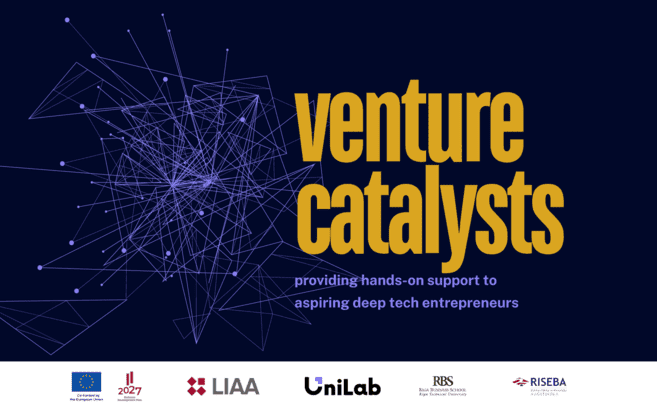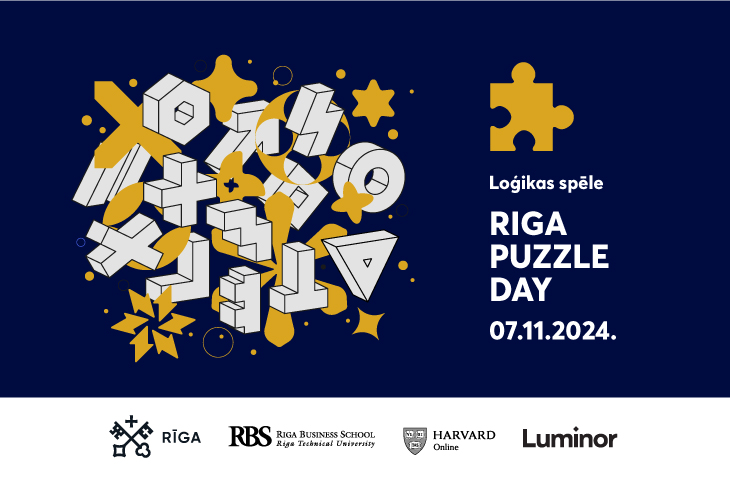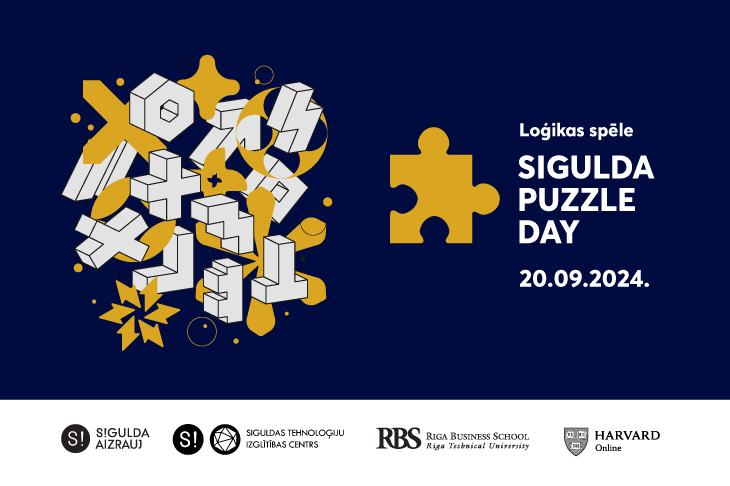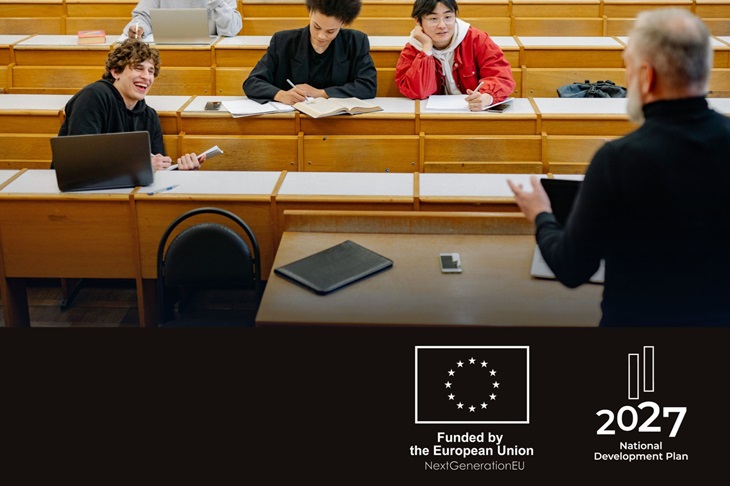In March, for the second time, I participated in the annual Riga Business School Technology Teachers’ Conference – Idea Day “Solutions for Meaningful Technology Use and Teaching”, where educators, education leaders and stakeholders gathered to discuss modern knowledge transfer and reception in the age of technology. Inspiring stories and discussions on technology and learning strategies provoked further thoughts.
Artificial intelligence has no skills but content
And so – artificial intelligence has entered our everyday lives, is present in school, in everyday life, at work. Be afraid? Ignore it? Trust it? The sensible thing to do seems not to let technology lead a parallel life, but to build a relationship with it – by purposefully exploring, questioning, trying, creating, making mistakes, finding solutions. Is this possible without a knowledgeable, supportive, motivating educator? How can educators make sure that instead of a proficient technology user and innovator, they do not grow up to be an AI-dependent, uninitiated person? How to avoid becoming confused by the new situation?
I was really looking forward to the introduction by Douglas Kiang, a U.S. computer science teacher I met last year. His presentation was full of powerful examples and it quickly became clear to the audience that “AI has the content but not the skills”. To avoid the “lazy student quickly asks a question on the AI chat, quickly gets the content (maybe correct, maybe not) and goes to lunch”, the educator needs to be involved to encourage students’ skill development, collaboration, critical thinking through appropriate tasks. The educator, by offering the challenge “Solve the problem. Make the world a better place”, becomes the creator of the thinking pupil in the age of artificial intelligence.
Digital optimization of the education system, but the future needs digital transformation
E-government expert Guna Puce spoke at the conference about meaningful transformation strategies in public administration. Although she did not speak specifically about schools, her words made me draw parallels with the system I work in: our education system has evolved in a different era. We are currently undergoing digital optimization, and “enthusiastic work creates a sense of turbulent activity, but the results are not what we expect”. I would very much like to see a focused digital transformation of the education system that focuses on the future, anticipating, planning for and taking account of developments. I heard something similar about the need for transformation of the education system in the closing discussions.
Digital pedagogical competences required
In the final part of the conference, education experts discussed how to increase the digital competence of teachers. What I heard in the discussion was that in addition to professional skills, teachers need digital pedagogical competence to understand “how to guide students through the digital environment and help them achieve their learning goals”. In the discussion, similar to the inspirational speeches, the message from all the speakers was that the learning process is changing and will continue to change as artificial intelligence is present, so teachers need to change the way they manage classroom processes from the traditional way to a way of facilitating the cognitive process through the skillful use of technology, in simple terms “teaching how to ask questions and interpret the answers”.
Teacher to student
At the end of the conference, the story of a student, Robert Legzdiņš, creating a digital product was used as a confirmation of Kiang’s introduction about a teacher who inspires a student to make the world a better place. Robert’s statement that “there are many possibilities, you just have to help find them” made me, as a teacher, come to my senses. Do I motivate my students enough to challenge themselves? Or do I sometimes not take the easy path of the “lazy teacher”? I am happy that in Latvia, as in other parts of the world, there are powerful teachers and creative students, and that they come together.
In conclusion, the Idea Day “Solutions for Meaningful Technology Use and Teaching” served as a thought-provoking tool on how to harness the potential of technology, together with the wisdom and expertise of educators, for learning in the school of the future, where every student has the opportunity to develop, be creative and think now.
